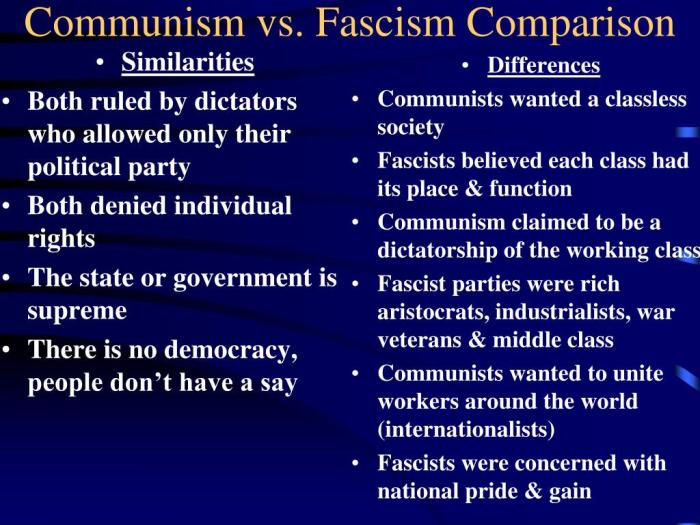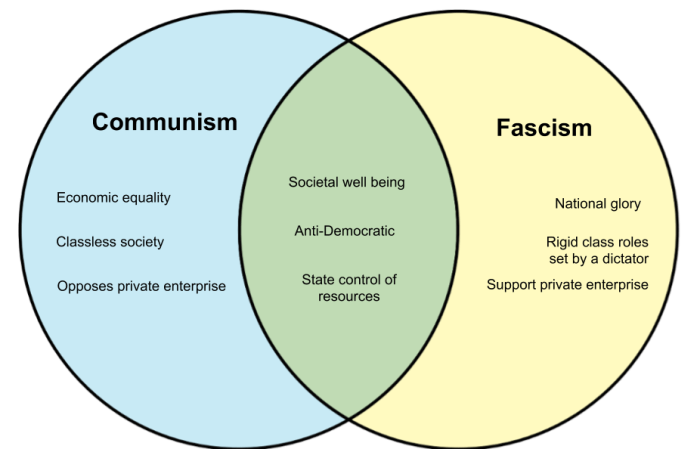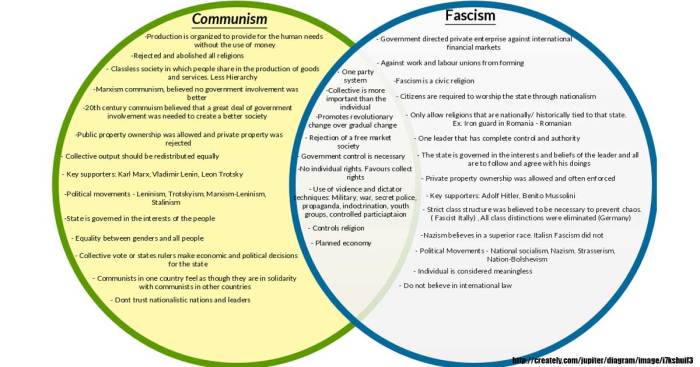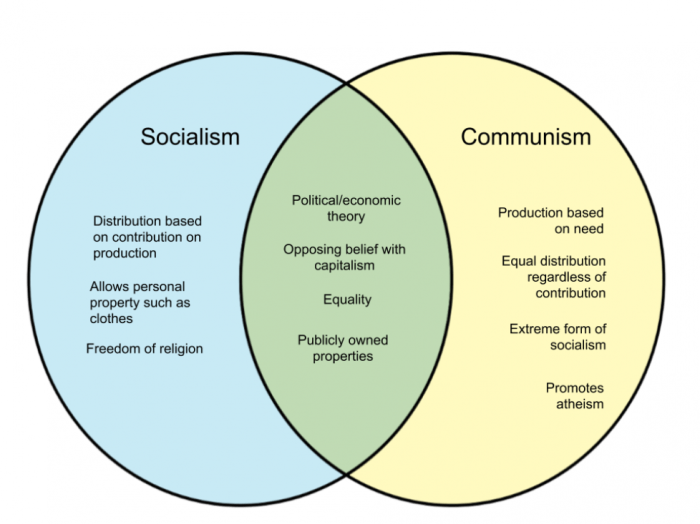Similarities between facism & communism – Similarities between fascism and communism, two seemingly distinct ideologies, reveal a striking convergence in their authoritarian tendencies, methods of control, and social and cultural impact. This exploration delves into the historical origins, ideological foundations, and practical manifestations of these ideologies, uncovering their shared characteristics and far-reaching consequences.
Both fascism and communism emerged from the turmoil of the early 20th century, shaped by the desire for order and control amidst social and economic upheaval. Their ideologies emphasized the need for a strong central authority, the suppression of dissent, and the collectivization of economic resources.
Historical Origins and Ideological Similarities: Similarities Between Facism & Communism

Fascism and communism emerged as distinct ideologies in the early 20th century, sharing certain historical roots and ideological commonalities. Both ideologies originated in response to social and economic upheaval, emphasizing the need for a strong central authority and suppression of dissent.
Fascism and communism share a common belief in the supremacy of the state and the subordination of individual rights. They both advocate for a centrally planned economy, with state control over key industries and resources. This collectivist approach aims to eliminate private property and create a more egalitarian society.
Methods of Control and Oppression

Fascist and communist regimes employ similar methods of control and oppression to maintain their authority. They utilize propaganda and censorship to shape public opinion and suppress dissent. Secret police forces are used to intimidate and eliminate opposition, targeting political dissidents, minorities, and anyone perceived as a threat to the regime.
Both ideologies have historically targeted specific groups for persecution and discrimination. Fascist regimes have targeted Jews, Roma, homosexuals, and other minority groups, while communist regimes have persecuted political opponents, intellectuals, and religious believers.
Social and Cultural Impact
Fascism and communism have had a profound impact on society and culture. They both seek to shape societal norms and values through education, media, and art. Both ideologies promote conformity and suppress individual expression, emphasizing the importance of loyalty to the state and the collective.
Fascist regimes glorify violence and militarism, while communist regimes promote revolutionary struggle and class warfare. Both ideologies use art and culture as tools to indoctrinate the masses and reinforce their political agendas.
International Relations and Expansionism

Fascist and communist regimes share similarities in their foreign policies. They often pursue territorial expansion and use military force to achieve their goals. Both ideologies view other nations as either potential allies or enemies, and they seek to establish spheres of influence.
Fascism emphasizes national pride and the pursuit of a “greater” empire, while communism aims to spread its ideology worldwide through revolution. Both ideologies have been responsible for major international conflicts, including World War II and the Cold War.
Examples and Case Studies

Examples of fascist regimes include Nazi Germany, Fascist Italy, and Franco’s Spain. Examples of communist regimes include the Soviet Union, the People’s Republic of China, and North Korea.
A comparative analysis of these regimes reveals striking similarities in their political structures, economic policies, and methods of control. They all relied on authoritarian rule, suppressed dissent, and pursued collectivist economic policies.
FAQ Explained
What is the key difference between fascism and communism?
While both ideologies share authoritarian tendencies, fascism emphasizes extreme nationalism and militarism, while communism focuses on class struggle and economic equality.
How did fascist and communist regimes control their populations?
They employed a range of repressive tactics, including propaganda, censorship, secret police, and the suppression of political opposition.
What were the similarities in the social and cultural policies of fascist and communist regimes?
They sought to shape societal norms and values through education, media, and art, promoting conformity and suppressing individual expression.